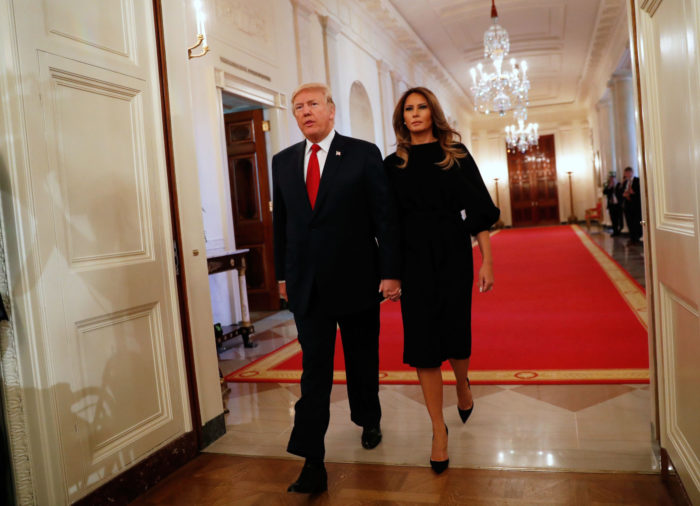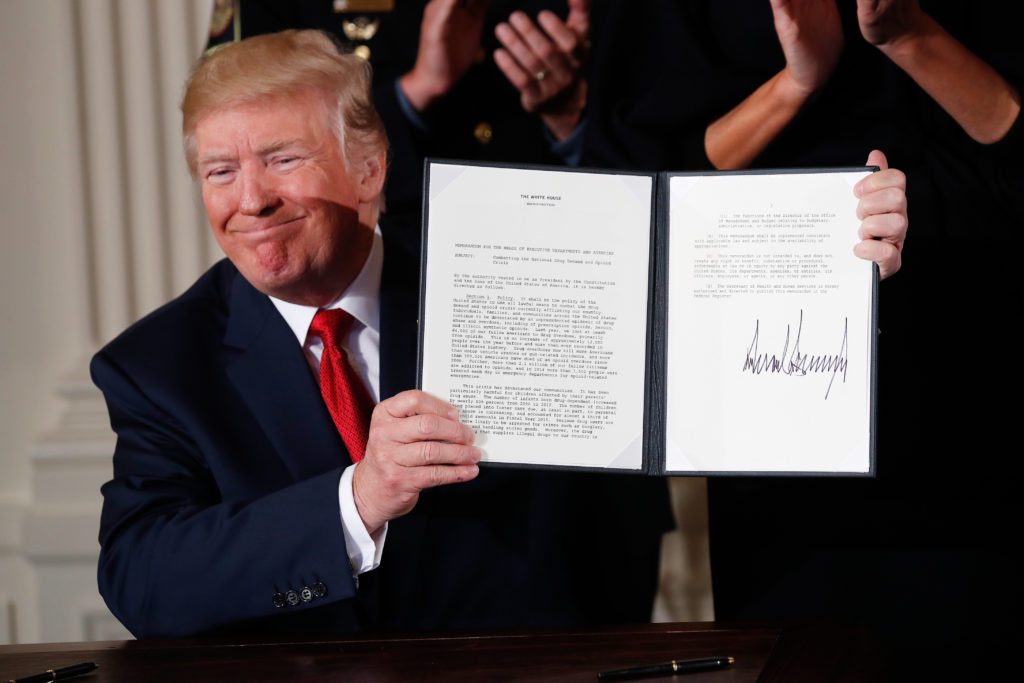Last night US President Donald Trump labelled the opioid crisis a national public health emergency. Vowing to “overcome addiction in America”, Trump called the drug the worst of its kind in American history, Associated Press reports.
“As Americans we cannot allow this to continue,” he declared, highlighting the gravity of a crisis which kills approximately 100 Americans a day. The effects of the opioid epidemic are widespread, which Trump was quick to point out; “this can happen to any of us,” he said. “No state has been spared.”

The audience – which included people who have suffered from drug addiction – were privy to a more personal speech than Trump usually gives. The President referred to his brother, Fred Jr., who was “a great guy” but had struggled with alcohol addiction for years. “He had a problem, he had a problem with alcohol…If we can teach young people, and people generally, not to start, it’s really, really easy not to take ’em,” he added.
The President’s declaration enables the US government to focus its resources on regions most affected by the drug crisis, boost accessibility of telemedicine services and enhance treatment for substance abuse victims. It will remain in place for 90 days with the possibility of extension. However, no funding would go towards the shift, causing health professionals and govnerment officials to respond.
“How can you say it’s an emergency if we’re not going to put a new nickel in it?” Dr. Joseph Park of the National Council for Behavioral Health questioned.

Senator Richard Blumenthal criticised the emptiness of the announcement, declaring that “an emergency of this magnitude must be met with sustained, robust funding and comprehensive treatment programs.” He added that people suffering “deserve better than half measures.”
The declaration also brings into question Trump’s attempts to replace Obamacare, which has been significant in combating the opioid crisis. Low income adults – including 20-30 year olds, the key demographic of the opioid crisis – are able to receive coverage for ongoing treatment through Obamacare’s Medicaid expansion.







